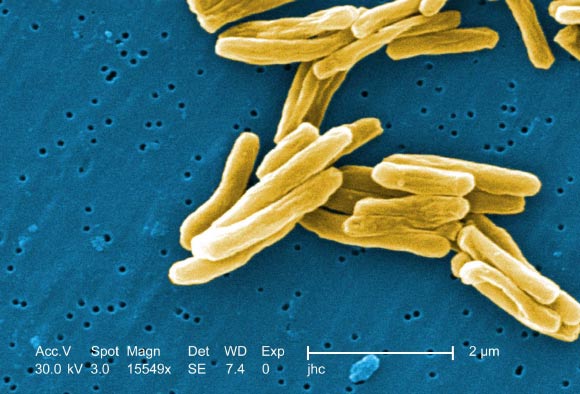Scientists from the United States and Australia claim they have found a new way to inhibit the growth of Mycobacterium tuberculosis, a bacterium that is the primary cause of tuberculosis.

Mycobacterium tuberculosis. Image credit: Janice Haney Carr / Centers for Disease Control and Prevention.
“The discovery held promise for the development of treatments,” said co-author Prof. James De Voss from the University of Queensland.
Tuberculosis is a serious infectious lung disease caused by a rod-shaped bacterium called Mycobacterium tuberculosis.
It is transmitted from person to person via droplets from the throat and lungs of people with the active respiratory disease.
Mycobacterium tuberculosis usually attacks the lungs, but it can also damage other parts of the body such as the kidney, spine, and brain.
Worldwide, 9.6 million people are estimated to have fallen ill with tuberculosis in 2014: 5.4 million men, 3.2 million women and 1.0 million children.
Tuberculosis is treatable with a six-month course of antibiotics. If not treated properly, the disease can be fatal.
“Our discovery suggests a new way in which we can robustly inhibit growth of Mycobacterium tuberculosis,” Prof. De Voss said.
Prof. De Voss and his colleagues investigated the impact of compounds related to cholesterol on Mycobacterium tuberculosis.
“What we have shown is that if you give this bacterium modified cholesterol instead, then it can’t use it as its energy source and so it stops growing,” he said.
“Interestingly, we don’t quite understand why this happens.”
The research was published online in the Journal of Biological Chemistry in February 2016.
_____
Daniel J. Frank et al. Cholesterol Analogs with Degradation-Resistant Alkyl Side-Chains are Effective Mycobacterium tuberculosis Growth Inhibitors. Journal of Biological Chemistry, published online February 1, 2016; doi: 10.1074/jbc.M115.708172







